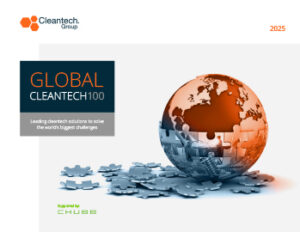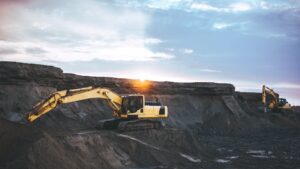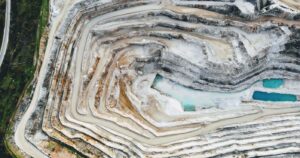Agricultural Data, Carbon Sequestration and the Future of Quantum Computing – Takeaways from Cleantech Forum San Francisco 2022
How do we measure sustainable practices and carbon sequestration in agriculture when data is so expensive to gather? How will quantum computing help decarbonize industry?
These were two key questions for us at Cleantech Forum, and will feature in our research schedule as we take a look at Carbon Accounting in Agriculture in Q2. At Cleantech Forum I was joined by:
- Cintia Ribeiro, Carbon Field Program Lead, Bayer Crop Science
- Ronald Zink, VP Product Development & Strategy, Trace Genomics
- Mark Cupta, Managing Director, Prelude Ventures
And here are the key points:
- Agriculture does not generate enough high-quality data
In a discussion based around investor and corporate interest in soil quality and ecosystem service measurements and payments, the lack of good data was described as a fundamental flaw. Agriculture is only 2% digitized. Much of the data generated is poorly used, with data-driven innovation such as Farmer’s Business Network discarding up to 90% of the data it receives. Low-cost, quality, large datasets are just not available yet to reap efficiencies from AI technologies.
- We are finding ways to promote regenerative practices and carbon sequestration and measure Scope 3 emissions in Agriculture.
Cintia Ribeiro from Bayer Crop Science outlined its Carbon Initiative activities, including a push into North America with its and the launch of Project Carbonview. This tool, launched in collaboration with Bushel and Amazon Web Services, is targeting the bioethanol market. It will allow producers to report on their supply chain carbon footprint and give farmers more access to the increasing value of low-carbon fuel market.
- This is increasingly valuable across the agricultural value chain, and startup innovation is responding.
Ronald Zink from Trace Genomics helped us understand how agricultural data science companies are helping to unlock this value. While the company operates a soil testing lab based on DNA analysis, the main driver of value is being able to come in and do the soil assessment and add intelligence to the raw data. The company sells services to farmers, but is increasingly looking downstream to capture value from agricultural input, food, and fuel companies looking to gain insight into and more control over their supply chains.
Keep an eye on…
Quantum computing. In a discussion in the topic with Mark Cupta of Prelude Ventures quantum computing was described as the single most impactful technology that could help solve decarbonization. In Mark’s words, if a genie granted one wish it would be for the advent of quantum computing, because in effect this grants unlimited wishes by enabling enhanced problem solving.
Also keep an eye on further integration of soil health and bio-based agricultural inputs and bio-fuels as startups connect what happens in the field to what is required from a new wave of biofuel development and the ecosystem services to reduce embedded carbon in products.



